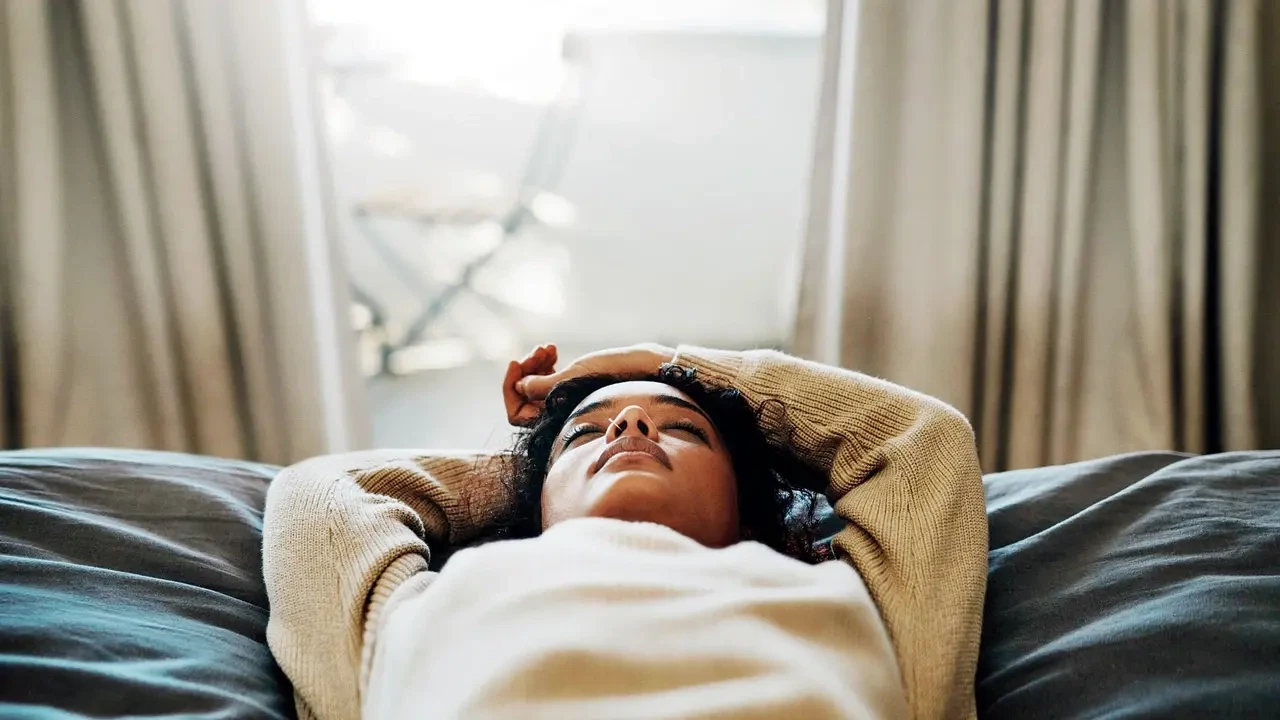Lately, I’ve been fantasising about rest. In music theory, such a brief moment of pause in the middle of a melody is symbolised by a rectangular block.
Glimpsing it on a sheet feels promising — it means you could anticipate a second to catch your breath, hold your fingers above the piano in preparation for the next note. I sometimes wish there could be such a script for us in the midst of our , a signal or symbol that furtively tells us to stop, pause, catch a break before resettling into activity. I’m not sure at what point in my childhood and early adolescence I internalised the gospel of hyper-productivity. Rest got equated with laziness. The last thing you wanted was to be the frolicking grasshopper that chilled the whole year through and forgot to replenish his stores, unlike the diligent ant, who never stopped labouring and whose reserves were, therefore, always in abundance. In every telling of this story, the grasshopper is shamed by the teller. The ant is celebrated for its fastidiousness, its relentless productivity. The moral of the story — be the ant.
Feminist discourse teaches you to seek the nuanced middle-ground. It also suggests we relieve ourselves of the burden of being solely accountable for storing up our pantries and instead, seek out collective units. What if the ant and the grasshopper partnered with each other? Perhaps the ant would have a more robust social life, and the grasshopper wouldn’t find himself with an empty granary. Couldn’t they live in a commune instead, and party together, host marvellous dinners, and share their trove of food reserves? Perhaps the grasshopper could teach the ant to chill a little, live a little, stop and smell the daisies.
The way in which this fable has been passed over generations has solidified in public consciousness the virtues of usefulness and the demerits of flippant behaviour. We see the grasshopper as a frivolous creature, but what if he was, perhaps, busy organising and resisting the narrative of capitalism? Recently, I was listening to a podcast by Dr Becky called ‘Good Inside’, I came across this through Ms Rachel — an early childhood educator loved by kids all over the world, particularly in Gaza. I share Dr Becky’s core belief, that parenting is something you learn. There are two aspects to the brief, in fact — caregiving, which is the job of keeping your child alive and safe, to whatever extent you can, and resilience-training, modelling for your child the behaviour you wish to see them inculcate. Dr Becky talked about how she was once complaining to her therapist about how insane Sundays can get, because her family usually does outdoor activities, and when they get back, there are so many things to be done around the house. While she is pottering around, she says her husband is lying on the couch. The therapist said, ‘you need to ask him to help you,’ but before the therapist could continue, Dr Becky had jumped in on this unexpected validation of her narrative of being the perpetual busy bee. The therapist then said something like, ‘let me finish, you need to ask him to help you lie on the couch with him.’ This suggestion and Dr Becky’s admission of it really drove home the point of how exquisitely simple it is to take a moment to rest, and yet, how those of us conditioned to perform the role of people-pleasing adults or those of us who see ourselves as worthy only to the extent to which we are useful try to not only over-perform but really feed the narrative of our own martyrdom.
This week, I am celebrating the first anniversary of my hospital discharge after I was admitted unconscious, totally out of it, unable to pronounce my name, the left side of my body flailing. It’s still a mystery how I contracted meningitis. I still have a tube in my right ear from the surgery that was done to tackle the damage to some bone because of the accelerated rate at which the infection spread. When I hold our unnaturally strong seven-and-a-half-month-old, who weighs about 10 kilos (!), I feel humbled by his tenacity. He was, during the time of my , around 20 weeks old. On Tuesday evening, our almost-four-year-old toddler went in a procession with the lantern he had made in kindergarten with the other kids. November 11 is celebrated here as St Martin’s Feast, and kids take lanterns and sit in a circle by the light of their flame (it gets dark here by 5 pm now), singing songs. Last year on this day, I had been unconscious for about two days. When my partner came to visit me, he showed me a picture of our oldest with his lantern, and I couldn’t believe how this stretch of time had just passed by. I had no memories of it and had made no memories during the span. As I balance the intense demands of full-time mothering with full-time work, in my moments of complete exhaustion, I remind myself that the capacity to rest both acknowledges and sustains my alive-ness. Rest is also resistance.
